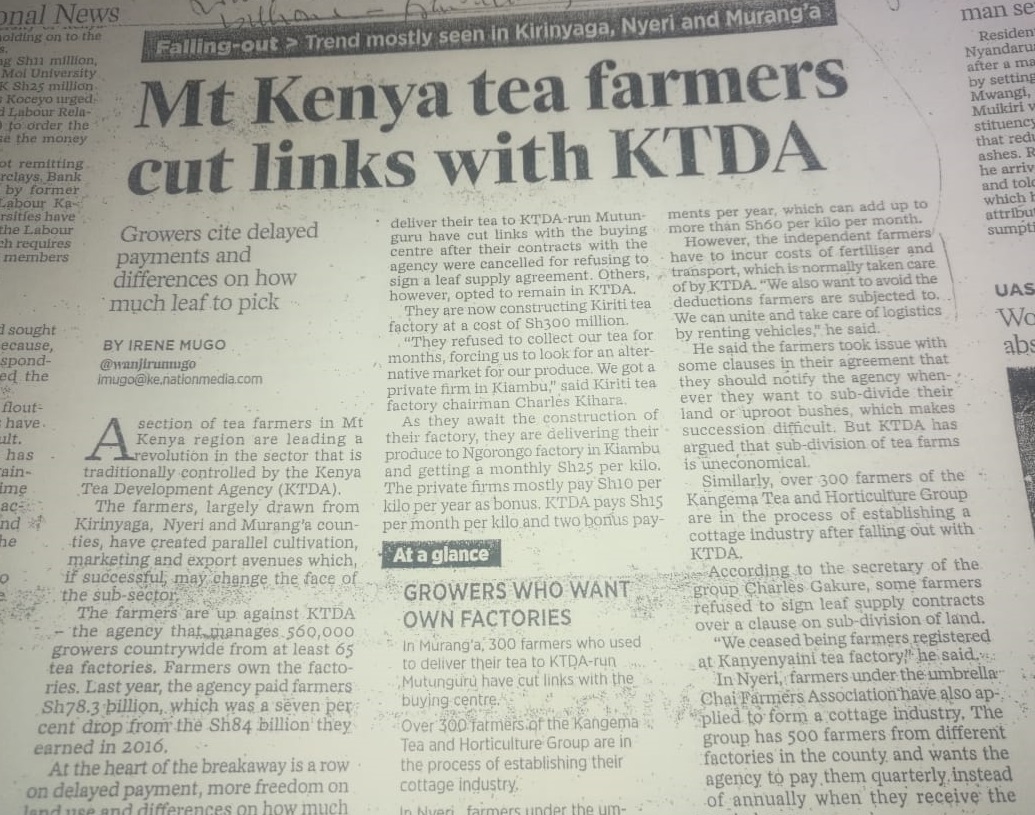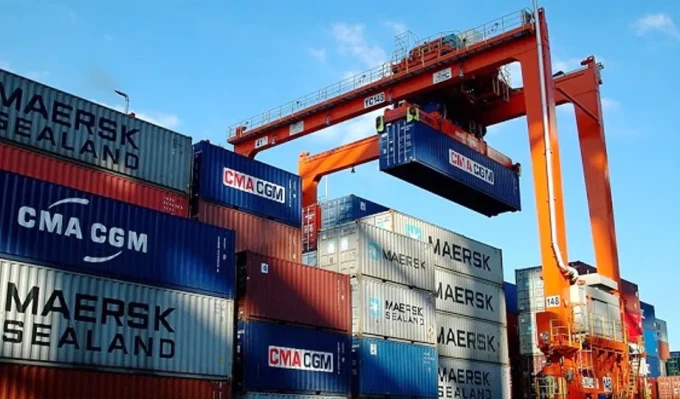[dropcap]K[/dropcap]enya Tea Development Agency (KTDA), which took over running of the smallholder tea sector in Kenya 18 years ago has been in the news over the past one year for mostly wrong reasons. It’s been all about farmers (through their factories) complaining about poor services from what is supposed to be their management services company.
The top management of KTDA has been accused of many ills, including misappropriation of funds and conflicts of interest in their operations. Besides, a government task force constituted in 2015 made far-reaching recommendations in 2016 geared at improving the plight of tea farmers. Key among them was promotion of value addition, expanding market and cutting costs to increase farmers’ net earnings as well as regulating of tea brokers.
Also, the task force proposed the review of governance structures at KTDA to eliminate conflict of interest, where, for example, the directors of different factories double as agency’s directors. Value-addition was expected to bring about growth in cottage industries to produce high-value teas for both local and export markets.
This will also encourage product diversification that will lead to expanded markets and more revenues for farmers as well as create jobs. Countries such as China are ready to buy value-added tea from Kenya.
These recommendations have not been considered, almost two years later as farmers keep living at the mercy of the KTDA’s current structures. The tea sector needs serious reforms to streamline its operations to benefit farmers more.
With the kind of money that KTDA makes from tea growers, pushing reforms can be a bit difficult: cash can be used to influence decisions and dim dissenting voices.
RELATED: SAVING TEA FARMERS FROM KTDA CARTELS
A move by GEM MP Elisha Odhiambo that would accelerate change at KTDA is long overdue. In a new Bill that’s he plans to move, the legislator wants KTDA to revert back to a state organisation, so it can be answerable to the government to be more transparent and responsive.
Well, that look so extreme, but the best route so far to have farmers reap what they deserve from their toil in tea farms. The tea industry is one of the best performing in Kenya’s economy and a leading foreign exchange earner. In 2017, the sector earned Ksh129 billion from a production of 439 million kilogrammes of the produce, according to Ministry of Agriculture figures.

This kind of income is enough to stimulate a drastic impact on farmers’ earnings and their lives if well managed and chanelled along the value-chain. It’s a shame that there is still widespread poverty among majority of smallholder tea grows when their produce enriches other players in the value chain. United Nation’s Food and Agriculture Organisation puts the poverty incidence at over 70% is some areas in the Rift Valley region.
Secondly, the government should find a way of helping tea factories improve operational efficiency to increase payment to the recommended 75% of auction prices. This is actually the work of the National Productivity and Competitiveness Centre, which must wake up and start doing something.
Currently, farmers get fall below this amount and some have now resorted to hawking, which hurts them even more.
KTDA should be at the forefront of these changes, otherwise it will soon lose its relevance in the sector. Already, some of the over 50 factories under it are revolting. In Central Kenya, they are starting their own marketing structures to bypass KTDA.
This should be a warning sign to the KTDA management. If it doesn’t reform, tea growers can easily make it irrelevant. If those factories in Central manage to emasculate themselves, it will have a domino effect countrywide – and this can have a disruptive impact on the sector.
NEXT: NATION MEDIA SUED OVER NEW MUSIC PROGRAMME



















































![Pula Co-Founders and Co-CEOs, Rose Goslinga & Thomas Njeru. Pula provides agricultural insurance and digital products to help smallholder farmers manage climate risks, improve farming practices and increase their incomes. [ Photo / Courtesy ]](https://businesstoday.co.ke/wp-content/uploads/2021/01/Pula-Co-Founders-and-Co-CEOs-Thomas-Njeru-Rose-Goslinga.jpg)




























































Leave a comment